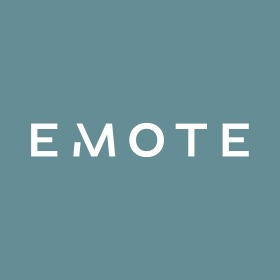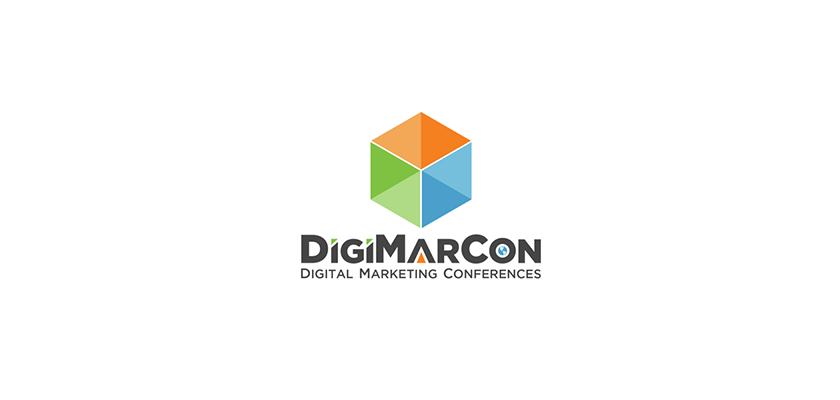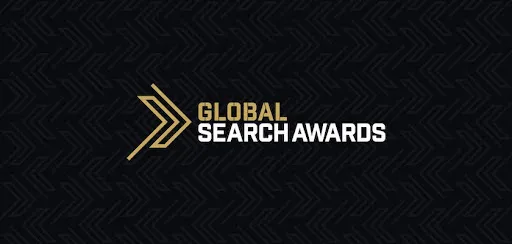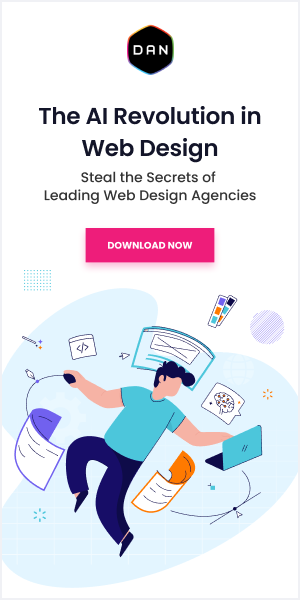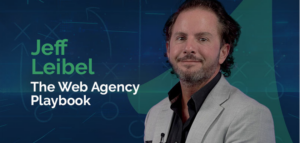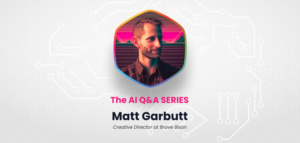
An Interview Where Anik Singal Reviews Legit Ways of Using ChatGPT in Marketing
Entrepreneur and CEO of Lurn, Anik Singal, joined a Q&A session.

If you want to discover more about how marketing teams are putting ChatGPT to use in their field, then scroll down to read the Q&A.
1. How did you get into the marketing field? Could you tell us about your career journey, starting with your education?
Initially, I was studying to be a doctor. I was in pre-med in the Meyerhoff program and had a full scholarship, which meant I was on track to whichever medical school I wanted. Although I found it interesting, I quickly discovered that it just wasn’t for me. Even after only the first year, I felt so disconnected from medicine that I began to feel uncomfortable with the idea of continuing.
After two long years, I decided to quit that career route. I transferred to the University of Maryland College Park, taking up studies in finance at the business school. This change didn’t just come out of thin air – I had actually been working as a financial planner with a company called World Financial Group while still in pre-med.
The job focused on selling insurance and financial planning services. It involved a lot of meeting clients and thinking on my feet, and I instantly clicked with it – I completely loved sales and finances. Once I found that initial passion, I knew I had to switch schools and chase the thing I loved.
Even still, after another year of college, I completely hated my course. My initial reaction was fear – I didn’t want to drop out of college and become a nobody. But, instead of panicking, I took a step back and thought to myself – what was it that I hated about this experience? After some soul-searching, I realized that I just didn’t like the study aspect. While I loved business and finance, having to study this hard and this long only to land a low-paying job didn’t make sense to me.
From that moment on, I set my sights on being an entrepreneur. Although I wanted to start a business, I didn’t have any money and knew my parents wouldn’t help me out. They were already paying for my college, as I had lost my scholarship when I changed universities. Instead of going to my parents, I went directly to Google.
I typed into Google and started researching how I could make money online. One thing led me to another, and one link took me to new information, which snowballed into more and more research. After around 16 or 18 months of bouncing around and researching, I stumbled upon selling information products, and something clicked.
I hired someone to teach me marketing strategy and copywriting and fell in love with the process. The initial love I had for financial planning wasn’t the finance side, I realized, but the marketing and client acquisition side. Once I realized exactly what I wanted to do, I was already in my third year of college.
From that moment, I never looked back.
2. What has been the biggest challenge you’ve overcome on your journey? What do you think past challenges have taught you?
In 2010/2011, I was $1.7 million dollars in debt. After my initial success, I had never expected I could reach such a low point. I went from having over 100 employees to only having six, shut down multiple offices, and was advised by my lawyers to declare bankruptcy. But I refused to give in.
As I moved forward, I realized that if I realigned the business, I could create some upwards momentum. After around a year and a half of downsizing and removing employees, I was able to turn things around and build back bigger than I ever had before. Although that was a scary period, I learned the importance of resilience.
No matter how bad a situation seems, no matter how ugly your circumstances look, there is always a solution. The number one lesson I always take from this period is that there is always a solution – you just need to work hard to find it. Nine times out of ten, the person who works the hardest wins. If you’re in a bad situation, you can always work your way out.
It’s like when you’re cooking dinner late at night. It’s too late to go to the grocery store, so you have to work with what you’ve got. No matter what’s in front of you, you’ll always find something to throw together to help you get out of a dire situation. Look at the assets you have in front of you and use them.
3. Marketing is always shifting as a field, with the most recent emerging technology being ChatGPT. Did AI come out of nowhere in this industry, or has it been bubbling away for some time?
It came out of absolutely nowhere. Although there were some tools that were beginning to establish themselves in the marketing industry, it seems that ChatGPT arrived out of thin air. The other tools in the industry didn’t have nearly the same impact.
ChatGPT changed the industry overnight. It came out like a tidal wave, and things haven’t been the same since.
4. A core part of why marketing has accepted AI into its workflows is due to its generative capabilities. Could you expand upon ways that you’re seeing marketing teams use generative AI?
One of the most impressive things about generative AI is that it can adopt personalities. You can create specific personas and ask ChatGPT to talk from that perspective. In a way, it can do this better than professional writers, as the human mind can take time before being able to emulate the voice of a brand.
An AI team can figure out how to talk like a brand almost instantly. Equally, it can pull up any amount of information that the internet has, taking in massive inputs that no human could ever replicate. From there, it can infer ideas, suggest new ones, and even emulate a specific voice for its outputs.
The sheer scope of what you can achieve with generative AI makes it incredibly powerful.
5. ChatGPT’s founding company, OpenAI, recently received over $10 billion in funding from Microsoft. How do you expect ChatGPT and other AI tools to grow as they receive more funding? How will this impact marketing and marketing teams?
I think the marketing industry is only a small part of the future of artificial intelligence. The places where it has the most utility are going to be in the other billion-dollar industries – pharmaceuticals, medical, legal, accounting, and onward.
Across the board, AI is going to be disruptive as it starts to do tasks and jobs that businesses are currently paying so much for. If a job can be done by an AI tool for next to no money, it will rapidly start to replace things. While that’s equally true in the marketing world, I think its main impact will be in other areas.
The vast majority of entry-level positions are going to be eradicated by AI. Even for other positions, it’ll be able to streamline a lot of different work, increasing productivity and boosting output. For marketing teams, it can allow you to create personalized engagement campaigns in seconds.
But the main impact will be in areas that need a level of total precision. Imagine surgeries perfected down to the cell level by AI. Or the invention of personalized medicines that are specifically created to work with your body. From predictive healthcare to completely automating the accounting field, AI has trillions of dollars of disruptive potential.
Honestly, I actually think that their growth isn’t in marketing at all.
6. Have any other AI tools shocked you quite as much as ChatGPT?
Nothing has even come remotely close. That said, I’m expecting that to change in the future. ChatGPT won’t be the end of all this development. I firmly believe that ChatGPT is only the beginning and will be a drop in the ocean of what’s coming in the future.
7. The potential of AI in marketing seems fairly endless. Is there anything you’re seeing that it can’t do?
We’re reaching the point where almost every task has a pathway for AI replication. Everything from copying voices and voice acting to creating content for a video, it can do it all. It’s fantastic at copying persona voices and rapidly writing outputs.
AI has a brain that can mirror what high-paid lawyers and accountants can do. Consultants that are paid huge numbers are now fighting against a machine that knows everything and can call upon it whenever it wants. Personally, I don’t see anything that AI cannot do.
8. Going forward, what are the top three skills that a marketer should have?
The number one skill that marketing teams need going forward is the ability to work with AI. Understanding how to prompt AI to get the output that you’re looking for is absolutely vital. The main goal that marketing teams have is to create content that people are excited about. The best marketer knows how to create anticipation and excitement, and can do so through their copywriting. Understanding how to use copywriting skills in tandem with AI generation will take people to the next level.
Alongside AI and copywriting, marketers need to understand data analysis. The best marketer isn’t just creative, but they will also know how to make data-driven decisions. Understanding outputs and inputs into data systems is vital in our modern world. Most people are currently just winging it when it comes to data.
If you’re going to scale a business or work as an efficient part of a marketing team, you need to have a flawless understanding of data.
9. As AI is still an emerging technology, how do you recommend that marketers bring themselves up to speed on it and build AI skills?
Honestly, using AI is the best way of learning how to use AI. It’s around $20 a month to get ChatGPT 4, which unlocks all of its most advanced functions. Once you have that, sit there and play with it – see what it can do.
On your first day, you can experiment with writing a social media post with AI. The next day you could write a blog post. The next, an entire book. One day you can focus on drawing up business plans, while another day you can focus on accounting. It’s already all there on the AI platform – you just need to use it.
10. We’ve seen a lot of emerging technology gain a lot of momentum and then fizzle out. What do you think makes ChatGPT different?
ChatGPT is genuinely similar to when the internet was created. I feel like this moment is the foundation of a new genre of industry. Now that we have this industry, it’s not going anywhere – AI is the future. You aren’t able to put that rabbit back into the hat, so to speak.
However, I don’t think ChatGPT is going to be the hottest tool forever. It’s definitely paving the path for other AI launches at the moment, but I think we’ll be amazed at what some other big companies bring out in the future. At the end of the day, ChatGPT is just a glorified search engine, it’s just words.
Imagine a future where AI can scan your body, read blood tests, collect other exams, and then interpret all of that data better than any doctor ever could. It could signal your genetic predispositions, offer custom vitamins and custom medicines to support your body, and so on.
Overnight, new tools will drop that could eclipse the potential of OpenAI by 10, 20, or even 30 times. While it’s not going anywhere, I think this is only the beginning for AI. The future holds AI that will blow our minds out of the water, surpassing anything that our current ChatGPT can execute.







